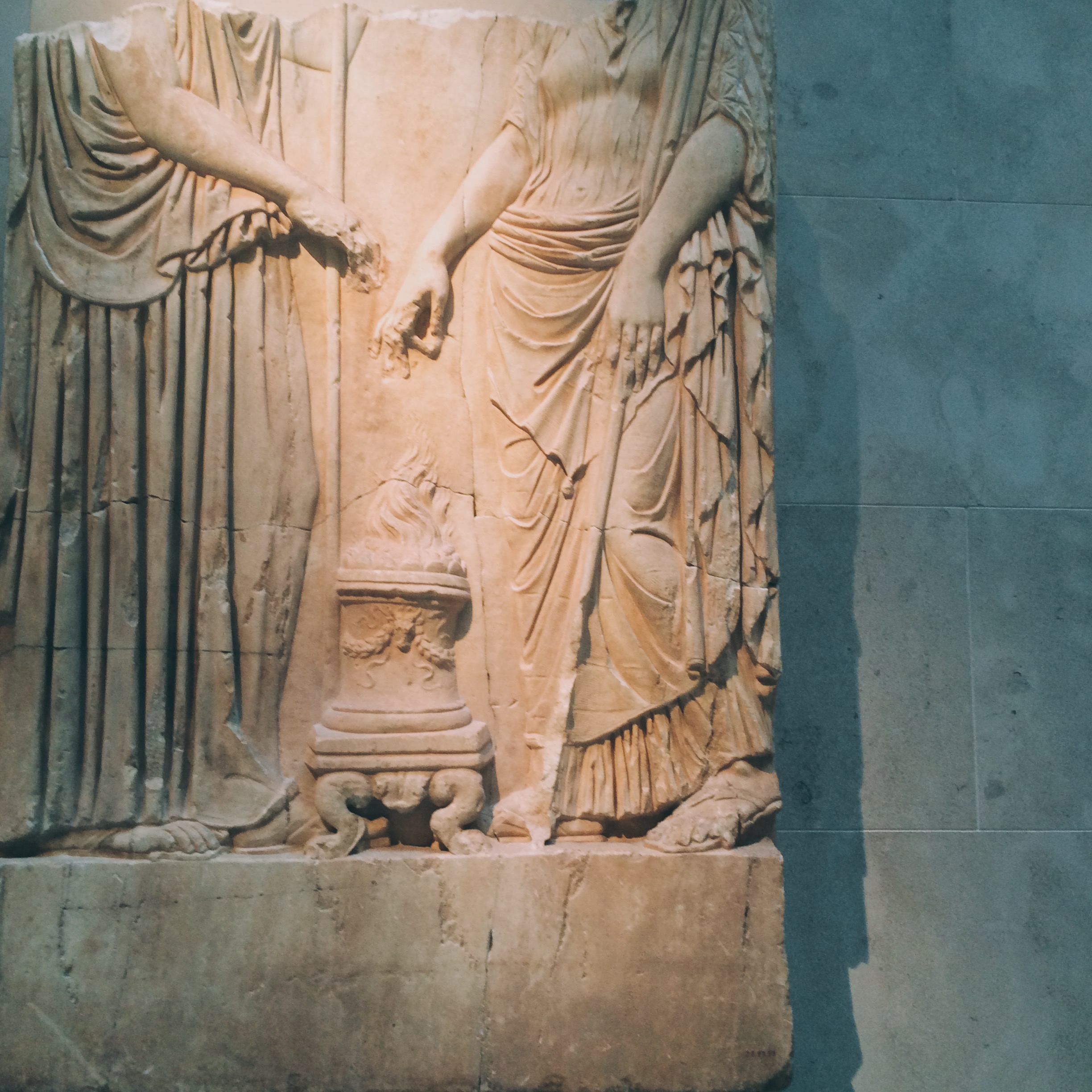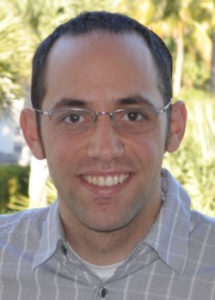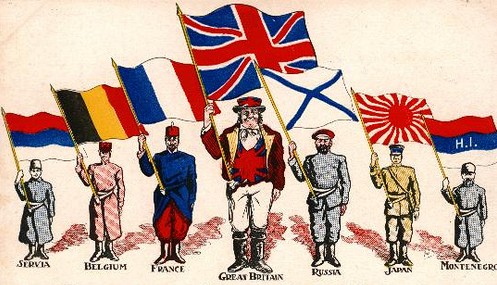On October 9th Dr. Scott Bruce, who recently joined Fordham’s History Department, sat down with Dr. Richard Gyug, Professor Emeritus of History and Medieval Studies, to discuss Dr. Bruce’s forthcoming article in Speculum, titled “The Dark Age of Herodotus: Shards of a Fugitive History in Early Medieval Europe.”
Category Archives: New Course
Drs. Scott Bruce and Richard Gyug discuss ‘shards’ of antiquity in the Middle Ages
Comments Off on Drs. Scott Bruce and Richard Gyug discuss ‘shards’ of antiquity in the Middle Ages
Filed under Department Events, Events, Faculty News, New Course
Announcing History Graduate Courses for Fall 2018
 The end of the Spring Semester is rapidly approaching. Now is the time to plan for the upcoming academic year. Here are the graduate courses to be offered during the Fall Semester 2018. Stay tuned for the Spring offerings in the coming weeks! Continue reading
The end of the Spring Semester is rapidly approaching. Now is the time to plan for the upcoming academic year. Here are the graduate courses to be offered during the Fall Semester 2018. Stay tuned for the Spring offerings in the coming weeks! Continue reading
Comments Off on Announcing History Graduate Courses for Fall 2018
Filed under Grad Student News, New Course, Teaching
New Fellow, Awards, and Lectures in Jewish Studies
 Fordham University is excited to welcome Dr. Marc Herman as the first joint Rabin-Shvidler Post-doctoral Fellow in Jewish Studies at Fordham and Columbia. Dr. Herman received his PhD in 2016 from the University of Pennsylvania, where he wrote his dissertation on rabbinic jurisprudence in the medieval Islamic world. His presence will add new dimensions to the teaching of the medieval period in Jewish history, to comparative legal studies, and the intersection of Jewish life and Islamic jurisprudence. At Fordham he teaches the courses “Ancient and Medieval Jewish History” and “Islam and Judaism: Law and Religion.”
Fordham University is excited to welcome Dr. Marc Herman as the first joint Rabin-Shvidler Post-doctoral Fellow in Jewish Studies at Fordham and Columbia. Dr. Herman received his PhD in 2016 from the University of Pennsylvania, where he wrote his dissertation on rabbinic jurisprudence in the medieval Islamic world. His presence will add new dimensions to the teaching of the medieval period in Jewish history, to comparative legal studies, and the intersection of Jewish life and Islamic jurisprudence. At Fordham he teaches the courses “Ancient and Medieval Jewish History” and “Islam and Judaism: Law and Religion.”
The fellowship and awards are made possible by the Stanley A. and Barbara
B. Rabin Postdoctoral Fellowship Fund at Columbia University and the Eugene Shvidler Gift Fund at Fordham University. Continue reading
Comments Off on New Fellow, Awards, and Lectures in Jewish Studies
Filed under Department Events, Events, Magda Teter, New Course, Teaching
Announcing History Graduate Courses for Spring 2018
Following on from last week’s listing of the graduate courses in History for Fall 2017, we now proudly announce the courses for Spring 2018.
Global History
HIST 6256 The History of Torture and Western Culture (Thursday 5:30-8PM)
What does the history of torture look like, when placed in a global perspective? Professor W. David Myers describes his course as follows:
From Greek slaves to deaths by a thousand cuts in China; from Jesuit missionaries in Japan or New France to anti-American insurgents in the Philippines; from anti-French insurgents in Algeria to anti-communists in Argentina; from Rodney King in Los Angeles to Afghanistan, ISIL and home again to Chicago, torture has been a ubiquitous and continuous feature of human culture around the globe. Today, roundly condemned by UN treaty and almost all nations, subject to international oversight, torture still persists on all continents and in all political systems. This course will examine that sad global history, with special attention to the human body as an object of state power, despite the legacy of the European Enlightenment, which proclaimed the autonomy of the individual as a highest good.
Medieval History
HIST 8150 Seminar: Medieval England (Tuesday 2:30-5PM)
The continuation of Professor Maryanne Kowaleski‘s year-long medieval Proseminar/Seminar course. For the first part, which this very blog may have described as “legendary” see here. From the description:
Students continue to work on the research project they defined in the Proseminar to this course. They also learn to design and use a computer database that includes data gathered in the course of research on the final paper, participate in seminars to improve their academic writing and public speaking skills, and familiarize themselves with professional standards for writing a scholarly article, giving a talk at an academic conference, and writing an academic curriculum vitae. They complete the seminar by giving a 20-minute conference paper on their research project and writing a thesis-length original research paper that could be published as a scholarly article.
MVST 5300- Occitania: Language and Power (Friday 2-5PM)
A brand new team-taught Medieval Studies course, a collaboration between Professors Nicholas Paul (History) and Thomas O’Donnell (English). From the description.
This team-taught interdisciplinary course introduces students to the cultural world of a medieval south: Occitania, a region defined by language stretching from the foothills of the Alps to the pathways across the Pyrenees and from the Mediterranean almost to the Loire. Students will study the Old Occitan language and its manifestations in documentary writing, historical narrative, and the poetry of the troubadours from the eleventh until the thirteenth centuries. In order to best understand the context for this literature, course topics will include urban and rural communities, gender and power, the Albigensian crusade and its aftermath, and the the rise of vernacular book production.
European History
HIST 5561 Nationalisms and Racisms in Modern Europe (Tuesday 5:30-8PM)
We’ve done a blog post about this course by Professor Silvana Patriarca before, where we described it as follows:
The seminar will focus on the history and historiography on the construction of “race” and nation in modern Europe (from the Enlightenment onwards) and in particular on the multiple connections and intersections between nationalism(s) and racism(s). As issues of cultural identity and questions of immigration and national belonging have become hotly contested in today’s European societies, the historiography on these subjects has been steadily growing. We will discuss different historical approaches, theories, and methodologies that emerge from the growing body of works addressing these issues and pay particular attention to socio-cultural histories and to transnational and comparative perspectives.
US History
HIST 5575- The United States and the World (Wednesday 2:30-5PM)
Professor Christopher Dietrich is a historian of US Foreign Relations, and in this course he brings that expertise fully to bear. “With an emphasis on the myriad ways in which peoples, cultures, economies, national governments, non-state institutions, and international institutions interact” the course will explore several themes, including “capitalism and economic policy” as well as “cultural relations, domestic politics, and perceptions of the world.” The focus on capitalism and global economy is especially important, as the course is intended to tie-in with the department’s Spring 2018 conference “The United States and Global Capitalism in the Twentieth Century.” Students in the course will get front-row seats, and can expect to be involved, in the planning and execution of a major international academic conference.
Comments Off on Announcing History Graduate Courses for Spring 2018
Filed under Courses, Grad Student News, New Course
New Course: HIST 5410 Race and Gender in Modern America
Right now, all over the country, college campuses are the sites of debate and protest over questions of history, identity, privilege, and inclusion. The timing could not be better for a graduate course in the History department which addresses these questions head-on. That is why we are particularly excited to announce that this coming Spring semester Professor Kirsten Swinth will be teaching a new course entitled “Race and Gender in Modern America,” Professor Swinth sat down with us and talked about her ideas for the course, including the book that will be the starting point for the conversation, and her “student-led” approach to the development of the course themes and readings. You can watch her comments below. We found it incredibly inspiring to hear someone speak so passionately and eloquently about the role that history can play in confronting some of the greatest challenges to our society. We bet you will too.
Comments Off on New Course: HIST 5410 Race and Gender in Modern America
Filed under Courses, Faculty News, New Course, Teaching
Fall Courses: The City and the Country in America (Stoll)
Another new course on offer in Fall 2015 will be HIST 5733 The City and the County in America. Offered by Professor Steven Stoll, this course explores the history of the country and the city as natural environments and symbolic landscapes through the works of historians, artists, and poets. It covers the period from the Revolution through the twentieth century, with special attention to the nineteenth century. Topics include Appalachia, slavery, and sharecropping; Lewis Mumford and Jane Jacobs; romantic landscape painting and Central Park.
Comments Off on Fall Courses: The City and the Country in America (Stoll)
Filed under New Course
Fall Courses: Nationalisms and Racisms in Modern Europe (Patriarca)
As registration for Fall graduate courses is upon us, we will be profiling the courses offered in the department in Fall 2015. Professor Silvana Patriarca will be offering a new course, HIST 5561 Nationalisms and Racisms in Modern Europe. The course deals with an exciting area of research currently being explored by Professor Patriarca and some of her students. Read on for a description of the course and what can be expected for those who enroll. Continue reading
Comments Off on Fall Courses: Nationalisms and Racisms in Modern Europe (Patriarca)
Filed under New Course
Critiquing a Memorial to a Medical Legacy, in Central Park
 Professor Durba Mitra‘s graduate class, Gender and History, had a discussion about gender and sexuality in the landscape of New York City next to the statue of J. Marion Sims, the so-called “Father of Gynecology” in Harlem. From 1845-1949, Sims carried out experimental surgeries on slave women to address the issue of persistent fistula after protracted labor in childbirth. He conducted these procedures on slave women without the use of anesthetics, believing that slave women did not need anesthesia for pain relief. While he is memorialized in a statue at 103rd Street and 5th Avenue for his innovative surgical techniques and his contribution to NYC medical institutions, his commitment to slavery and his use of slave women for experimentation is less well known. The memorial bears no marks of this history.
Professor Durba Mitra‘s graduate class, Gender and History, had a discussion about gender and sexuality in the landscape of New York City next to the statue of J. Marion Sims, the so-called “Father of Gynecology” in Harlem. From 1845-1949, Sims carried out experimental surgeries on slave women to address the issue of persistent fistula after protracted labor in childbirth. He conducted these procedures on slave women without the use of anesthetics, believing that slave women did not need anesthesia for pain relief. While he is memorialized in a statue at 103rd Street and 5th Avenue for his innovative surgical techniques and his contribution to NYC medical institutions, his commitment to slavery and his use of slave women for experimentation is less well known. The memorial bears no marks of this history.
Continue reading
Comments Off on Critiquing a Memorial to a Medical Legacy, in Central Park
Filed under Faculty News, New Course, Teaching
New Course to Explore Material Culture in Early America
This Fall, Professor Elaine Crane will offer a new course, HIST 4658 Home Sweet Home: the Material Culture of Early America. The course will meet on Tuesdays 3:30-5:30 at the New York Historical Society in Manhattan.
Professor Crane writes:
Home Sweet Home will explore early America through objects in daily use. We will look at candle molds to see how hot wax and string turned darkness into light. We will handle utensils and cooking ware to learn how people produced the food they ate and the beverages they drank without the help of microwave ovens and processors. Wooden plates and porcelain cups will distinguish rich from poor as will the furniture and textiles people passed from one generation to another. Room by room and article by article early Americans will reveal how they lived their lives.
Comments Off on New Course to Explore Material Culture in Early America
Filed under Faculty News, New Course





